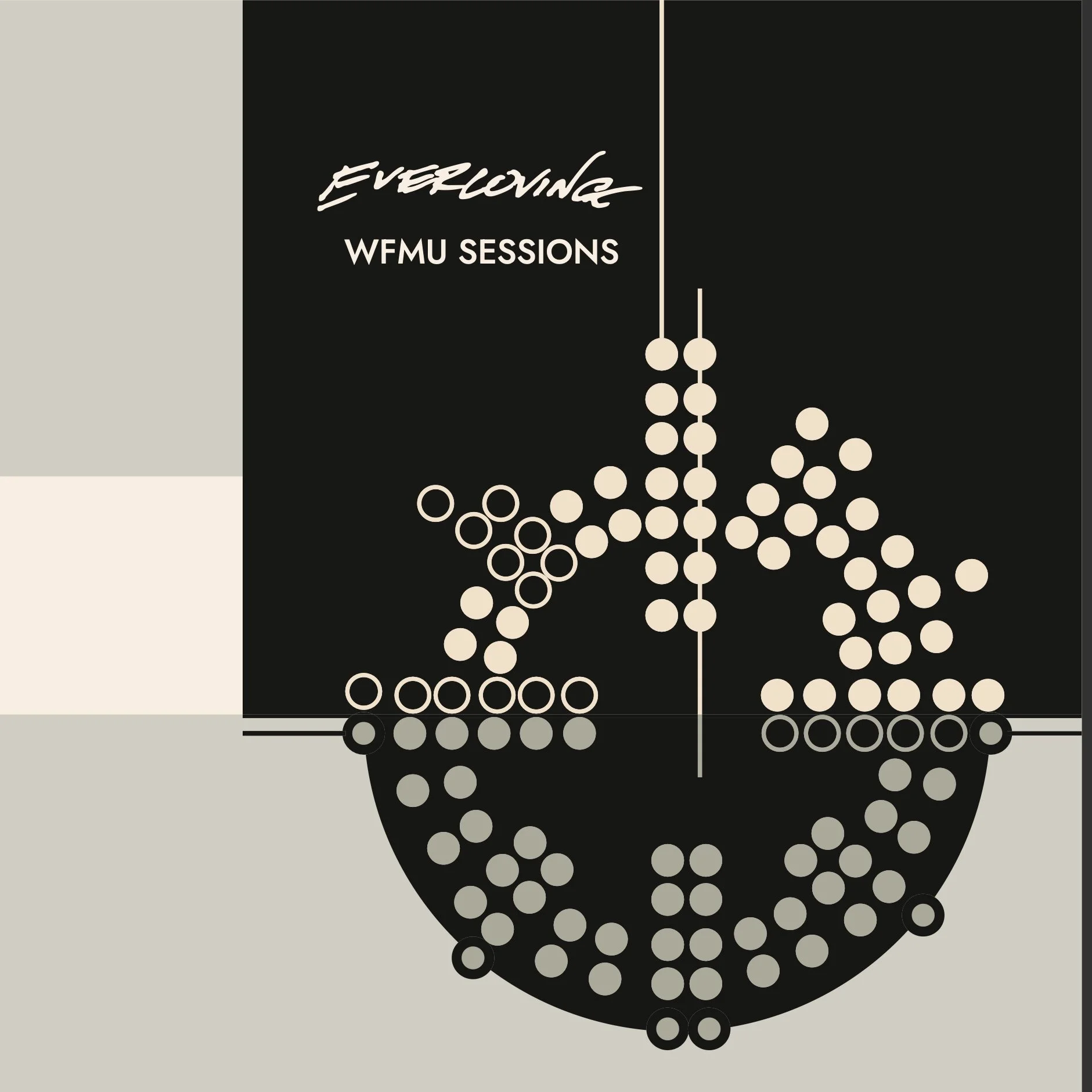EVERLOVING
WFMU Sessions
“DEMOLISH SERIOUS CULTURE.”
Some 60-odd years ago, in gestures of solitary antiheroism, provocateur Henry Flynt deployed a sardonic agitprop Americana, These were not appropriations. They were assertions, derisive snorts of grit and gusto, hybridized sounds that drilled red-hot through contrarian pop stylings and erupted above classifications. Yet within them lurked an ache of the unobtainable—and an implicit challenge.
Today, in a spirit of affirmation and exaltation, the combative “supergroup” Everloving accepts Flynt’s call to action. However, this is no mere tribute act in which the covers smother. In the ebullient hustle of Everloving, the hot fuss ’n’ bother of yesteryear is churned at a vigorous 45 RPM to a jukebox-lubricating essence.
The careers of these various artists unwind with kudzu-tendriled resolve. Like Flynt before him, Jonathan Kane promulgates the physicality and spirit of the blues in irony-free romps that have energized 20th-century minimalism via collaborations with La Monte Young, Rhys Chatham, and Swans.
Peter Kerlin and Jim McHugh fueled Sunwatchers, whose anarchic psychedelia trampled various barricades with abandon. Dave Soldier has renounced classicism in collaborations with Guided By Voices, author Kurt Vonnegut, Talking Heads’ David Byrne, and the Velvet Underground’s John Cale.
Everloving is a triumphant singalong and clangorous Huzzah! from a like-minded gathering of pickers, fiddlers, and tub-thumpers who each reject designations, ossifications, and highfalutin encapsulation. In celebrating the essence of Henry Flynt, they assert collective agency with the low-down, hoe-down abandon that our tumultuous era demands.
• • • • •
Sunwatchers:
“Music Is Victory Over Time, like so much of the Sunwatchers catalog, creates the mindset in which revolutionary impulses and ideas can flourish—one driven by patience and passion in equal measure. Their music is a leaderless, collective shout of defiance, each element working in tandem to rethink how music moves and how it moves the listener.”
—Pitchfork
Jonathan Kane with La Monte Young:
“You can hear the same blue-note pitch swerves that have been the poetry in motion of guitarists from Son House to Jimi Hendrix. The locomotive chug of Young's playing also swells with the Chicago rent-party exuberance of Jimmy Yancey and Little Richard's barrelhouse hammering."
—Rolling Stone
Jonathan Kane:
“Kane underpins these drones with a deceptively simple, forcefully executed shuffle. His swinging opuses exude bright, earthy euphoniousness instead of dark, cerebral dissonance … Rarely does the avant-garde rock this hard."
—Time Out New York
• • • • •
Everloving
WFMU Sessions
2025
Table of the Elements
[Oganesson] 116
EOE-000
Phono 12” LP + 7” single, 180g vinyl, gatefold jacket, booklet


